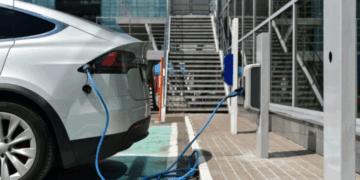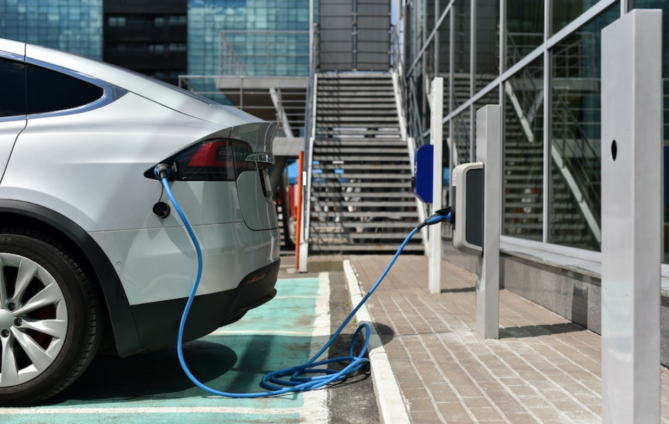In a bold step toward a sustainable future, the Government of Ghana is set to deploy solar-powered electric vehicles (EVs) for use by ministers and heads of public institutions as part of its ambitious Green Transition Strategy.
Announcing the initiative at the Government Accountability Series in Accra, Minister for Energy and Green Transition, John Abdulai Jinapor, said the first batch of EVs is already being procured for official use.
“Very soon, you’ll see ministers and agency heads driving EVs powered by solar energy, we’re starting with government institutions, but we’ll expand to other sectors as well.”
The initiative forms a key component of Ghana’s broader strategy to reduce greenhouse gas emissions, curb reliance on fossil fuels, and build climate resilience through renewable energy adoption.
Minister Jinapor noted that the switch to electric vehicles goes beyond modernizing the government fleet—it is intended to signal a nationwide shift toward clean technology.
The government plans to collaborate with private sector stakeholders to accelerate the rollout of EVs to commercial drivers and the general public. This will be supported by an expanded green infrastructure, including EV charging stations and solar power systems.
Climate Action and Economic Impact
Officials believe the policy shift will help Ghana meet its climate obligations under international agreements, while reducing long-term transportation costs and improving urban air quality.
The move positions Ghana as a regional leader in clean mobility, and aligns with global trends favoring the adoption of sustainable transport systems.
With the rollout imminent, Ghanaians can expect to see solar-powered electric vehicles on the roads soon—driven not just by innovation, but by national commitment to a greener, cleaner future.




















